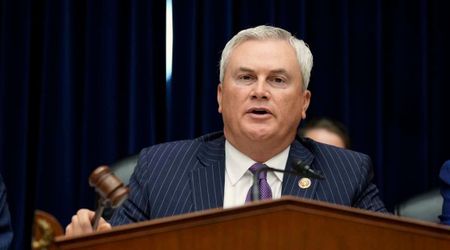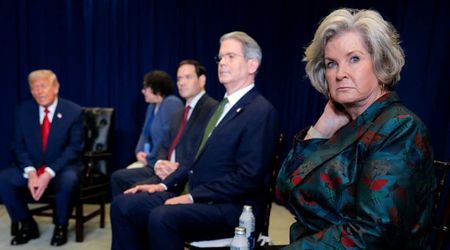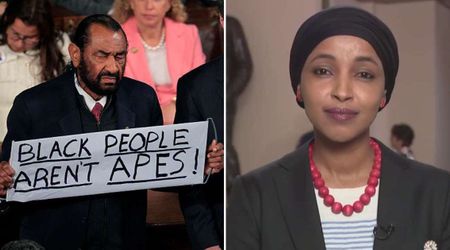Texas passes bill to legally define ‘woman’ by sex assigned at birth and protect female-only spaces

AUSTIN, TEXAS: The Texas legislature has officially passed House Bill 229, which zeroes in on defining sex strictly by biology and protecting single-sex spaces like girls’ locker rooms, bathrooms, and prisons.
The legislation — which cruised through the Texas Senate early Wednesday, May 28, by a strict party-line vote of 20 to 11 — had already cleared the House on May 12, according to The Texas Tribune. Now it’s heading for Governor Greg Abbott’s desk.
The bill lays out the basics in bold terms, defining “female” as “an individual whose biological reproductive system is developed to produce ova,” and “male” as “an individual whose biological reproductive system is developed to fertilize the ova of a female.”
In case there was any ambiguity, the bill also declares that “sex” means “an individual’s biological sex, either male or female.”
Details of the legislation defining sex strictly by biology
The bill was authored by Rep Ellen Troxclair and carried in the Senate by Sen Mayes Middleton, both Republicans. Troxclair made her point on X (formerly Twitter), declaring that the bill “defines what a woman is, recognizing biological reality.”
She added, “With the passage of House Bill 229, Texas is protecting safety, privacy, & rights of women & girls across our state.”
Supporters say the legislation is about drawing a hard line to keep certain spaces and opportunities exclusively for biological women—especially in sports and other gender-segregated areas.
As Troxclair’s bill puts it, “there are legitimate reasons to distinguish” between men and women “with respect to athletics, prisons … domestic violence shelters, rape crisis centers, locker rooms, restrooms, and other areas where biology, safety, or privacy are implicated.”
Riley Gaines, a former NCAA swimmer turned women’s rights activist, called it a “common-sense bill [that] simply defines and codifies sex-based terms” in a post on X the same day.
🚨 HB 229, the Women’s Bill of Rights, has passed the Texas Senate!
— Riley Gaines (@Riley_Gaines_) May 28, 2025
This common-sense bill simply defines and codifies sex-based terms like “woman” in TX state law.
Now it heads to Governor Abbott’s desk where it’s expected to be signed into law.🙌🏼pic.twitter.com/F1VUTAEoTz
ME Castle from the conservative Christian nonprofit Texas Values chimed in, “You don’t mess with Texas women. HB 229 makes sure that the reality and truth of the two sexes is clear in Texas law and never altered by school districts, local cities, or bureaucrats ever again!”
The Women's Bill of Rights (HB 229) PASSES the Texas Senate 20-11 and is soon headed to the Governor's desk!!
— Texas Values (text txvalues to 797979 for update) (@txvalues) May 28, 2025
“The message is clear: You don’t mess with Texas women. HB 229 makes sure that the reality and truth of the two sexes is clear in Texas law and never altered by school… pic.twitter.com/5rrWpmdSry
Middleton was blunt on the Senate floor. “Your birth sex is your birth sex, period," he declared, arguing the bill just aligns with what state and federal orders have long declared—that there are only two sexes: male and female.
Critics call it an attack on LGBT Texans
But not everyone’s cheering. The opposition, mostly from Democrats, was rather passionate.
Sen Jose Menéndez called the bill a “form of state-sponsored discrimination.” He said, “If a law forces non-binary Texans, who are real people, into categories that don't reflect their lived experiences or identities … that would actually become discrimination in practice.”
Rep Jessica Gonzalez, another Democrat, slammed the bill during earlier debate in May, labeling it “harmful,” “dangerous,” and “really freaking insulting.”
There’s also concern over what happens to transgender Texans who’ve already gotten court approval to change the gender markers on their IDs and documents.
While the bill doesn’t slap anyone with fines or jail time, it does mandate that state agencies use these definitions anywhere sex is referenced in Texas law.
That alone could force a big rollback of changes already made to birth certificates, driver’s licenses, and school records.
What happens next?
According to Middleton, the bill may seem simple, but its reach is deep. He called it a “definitions bill,” reminding lawmakers that there are no criminal or civil penalties attached.
Still, he didn’t downplay its ramifications. “We have male and female, woman and man throughout our state code. It’s in there hundreds of times,” he said. “We never thought we needed to define that until recently.”
The bill is now on its way to Governor Abbott, who has a history of supporting legislation that safeguards spaces designated for women.

This article contains remarks made on the Internet by individual people and organizations. MEAWW cannot confirm them independently and does not support claims or opinions being made online










